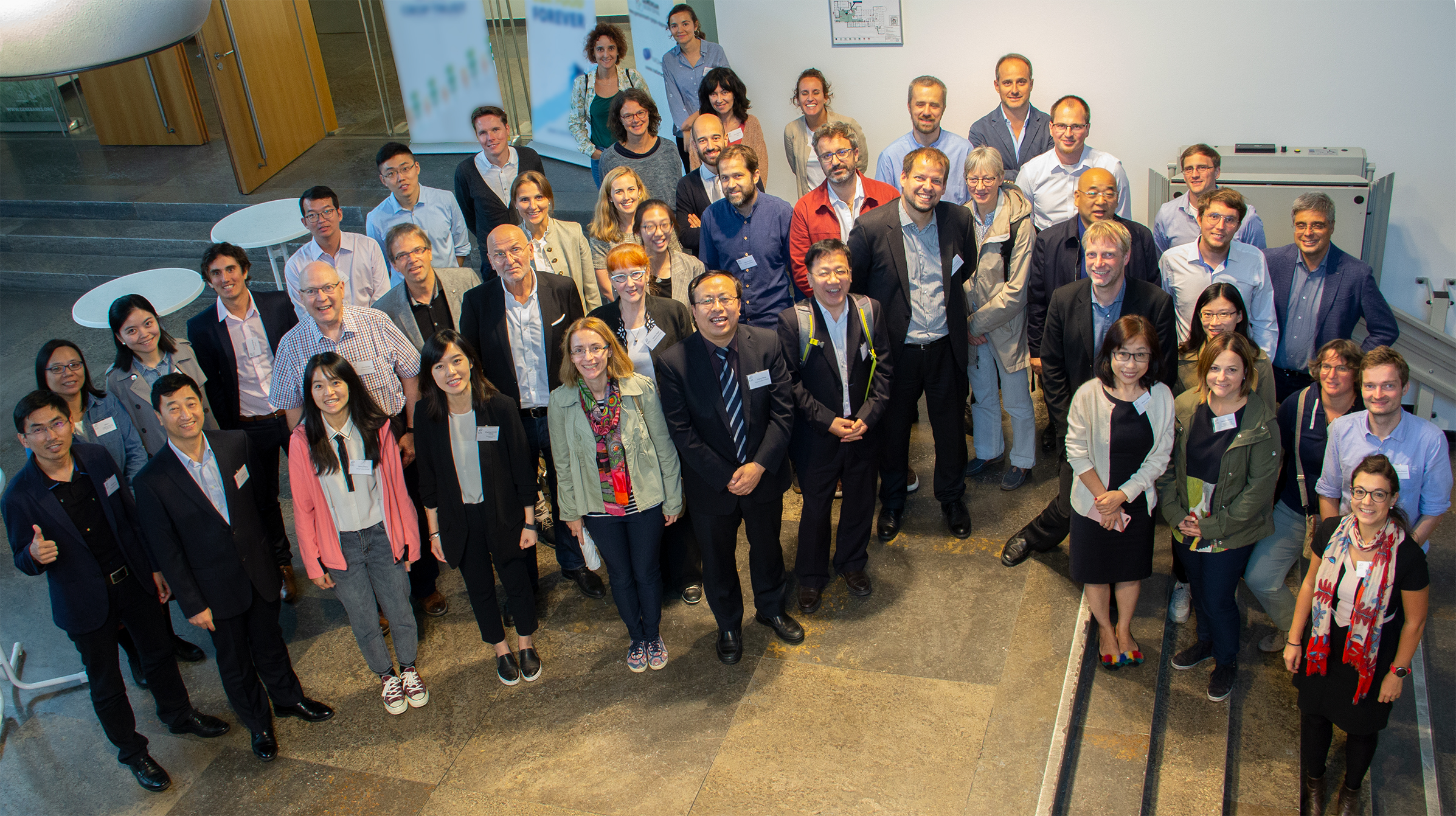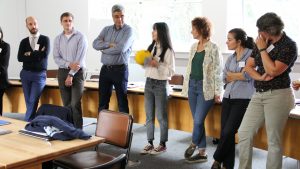
CLEARING HOUSE project kicks off
From the 4th to 6th of September 2019, the Metropolis Secretariat General participated to the launch of the Clearing House project in Bonn. Submitted to the European Commission in 2018 through its H2020 funding program, and CLEARING HOUSE was one of the two winner projects selected from a pool of 48. The project will foster Sino-European decentralized cooperation in expanding the knowledge of trees and forests in urban areas, and it will end in 2023. The partners of the project convened to review the project’s objectives and work plan.
Our main objective is to analyse and develop –across China and Europe– the potential of UFNBS (Urban Forest Nature Based Solutions) for enhancing the resilience of cities and metropolises that face major ecological, socio-economic, and human wellbeing challenges.
 The project brings together prestigious universities, national research institutes, international and national non-profits, SMEs, botanical gardens, and some of our members such us Barcelona, Brussels, Beijing, Hangzhou, Guangzhou, Shenzhen, and Xiamen, in a consortium of 26 partners led by the European Forest Institute.
The project brings together prestigious universities, national research institutes, international and national non-profits, SMEs, botanical gardens, and some of our members such us Barcelona, Brussels, Beijing, Hangzhou, Guangzhou, Shenzhen, and Xiamen, in a consortium of 26 partners led by the European Forest Institute.
Over the next four years, the partners will provide evidence and create tools that encourage rehabilitating, reconnecting, and restoring urban ecosystems. This involves studying the social, economic, and political drivers of urban forests, as well as exploring sustainable business models to facilitate the management and development of trees and urban forests as solutions for diverging societal challenges. The project’s partners will develop an online application, a global benchmark tool, and guidelines that can aid in the design, governance, and management of urban forests.
There are several reasons to promote UFNBS, be it reducing air pollution; mitigating heat waves; restoring former mining sites; boosting river catchment and water quality; increasing attractiveness, outdoor recreation opportunities and nature connectivity; or regenerating urban areas, among others.
“The project will make visible the multiple benefits that urban trees and forests provide to urban societies, and will show that these are cost-effective measures to actual societal challenges,” said Dr Rik De Vreese, expert in urban forestry at EFI and coordinator of the project.
“I personally hope to see more trees in our cities and towns.” Professor Wang Cheng from the Chinese Academy of Forestry (CAF-RIF), partner of the project, echoes his sentiments: “It’s a very important ecological practice, for cities and suburbs… There are so many manmade constructions in urban areas, but the natural part is very important, especially urban trees and forests.”
In collaboration with the International Union for Conservation of Nature (IUCN), Metropolis and CAF-RIF will launch two competitive calls open to cities and metropolises that need innovative knowledge of planning and managing UFNBS for urban ecosystem restoration and rehabilitation. The first call will be open in April 2020 to cities and metropolises from EU countries and China. The second call, in June 2021, will broaden the scope and all cities and metropolises worldwide will be able to participate.
The cities selected during the 2 calls will be awarded with grant travels and logistic support to participate in learning city tandems that will facilitate knowledge Exchange on UFNBS.
CLEARING HOUSE stands for Collaborative LEArning in Research, INformation-sharing and Governance on HOw Urban forests as nature-based solutions support Sino-European urban futures.
The post was originally published on the Metropolis website on 08/09/2019
